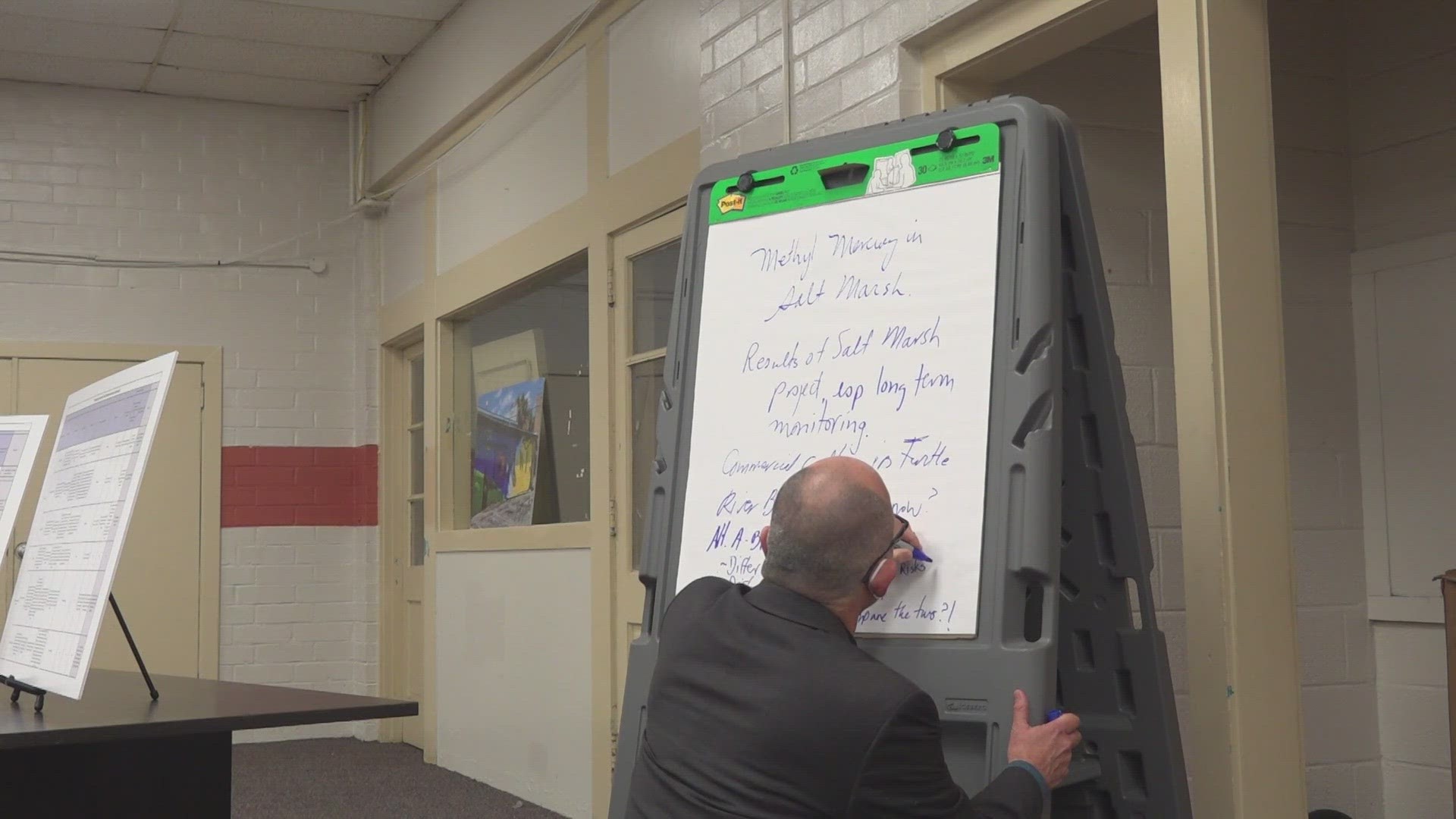GLYNN COUNTY, Ga. — The Environmental Protection Agency says it is looking at two ways to address mercury at the old Linden Chemicals and Plastics (LCP) site in Brunswick.
Rob Pope, who is the EPA site manager and tasked with addressing mercury in the groundwater of a site in the plant, says the EPA can address the mercury through biology or chemistry.
Biologically, the EPA would use bacteria to "eat" the mercury. Chemically, it would neutralize the mercury with a coating. The EPA says to think of the chemical solution as the coating on an M&M candy.
The LCP plant site is one of four nationally designated superfund sites. A recent Emory University study showed that LCP emitted toxins for years and some Glynn County residents have the toxins in their blood.
The EPA held a Q&A meeting for neighbors Thursday night, but some neighbors like Anita Collins were confused by the scientific explanation and want a better explanation of how the EPA is handling the mercury.
“2:30 minute video with graphics...with the facts it can be done," Collins said.
Collins says she has levels of the toxins in her blood.
“I don’t glow in the dark, some of my neighbors do," Collins told First Coast News. "I’m not trying to be funny but, that’s the reality in terms of the study. It was an eye opener, I mean you know, but when you have data from blood analysis to confirm what you believe, it adds credibility to what we’ve already known here.”
The EPA says it will create a fact sheet for neighbors based on the feedback it received at Thursday's meeting. It will create a proposed plan to remove the mercury and present it to the public by 2024 when people will have the chance to comment on the plan.

